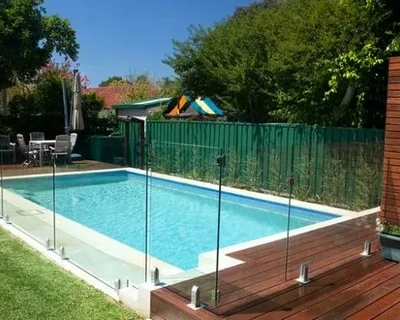The Ultimate Guide to Choosing the Right Pool Fence for Your Home
When it comes to enhancing the safety and aesthetic of your backyard pool, nothing is more important than installing the right pool fence. A pool fence not only helps protect children and pets from accidental drownings, but also adds a level of privacy and style to your outdoor space. In The Ultimate Guide to Choosing the Right Pool Fence for Your Home, we’ll explore different fencing materials, design options, legal requirements, and factors to consider before making your final decision.
Why a Pool Fence is Essential
Before diving into the types of fences available, it’s important to understand why a pool fence is necessary. According to the CDC, drowning is one of the leading causes of unintentional injury-related deaths among children aged 1–4. A properly installed pool fence acts as a critical safety barrier, helping prevent unsupervised access to the pool area.
In addition to safety, pool fencing is often legally required by local or state regulations. Understanding these laws is an essential step in choosing the right pool fence for your home.
Types of Pool Fencing Materials
Different materials offer varying levels of durability, privacy, maintenance, and cost. Here’s a breakdown of the most common pool fencing options:
1. Aluminum Fencing
Lightweight, rust-resistant, and low maintenance, aluminum is a popular choice. It offers a sleek, modern look while maintaining visibility.
2. Glass Fencing
Tempered glass panels provide a clear view of the pool area, adding a luxurious feel. Though more expensive, they are sturdy and aesthetically pleasing.
3. Vinyl Fencing
Vinyl is a great option for homeowners seeking privacy. It’s affordable, easy to clean, and available in various designs.
4. Mesh Pool Fencing
Mesh fences are ideal for temporary or removable use. They’re easy to install and offer excellent visibility, but may not be as durable long-term.
Key Factors to Consider When Choosing
When selecting a fence, keep the following factors in mind:
✔️ Safety Compliance
Ensure the fence meets local building codes. Look for features like self-closing and self-latching gates.
✔️ Aesthetics
The style of the fence should complement your home and backyard design. A modern glass fence might suit a contemporary home, while wrought iron fits classic aesthetics.
✔️ Maintenance
Consider how much effort you’re willing to put into upkeep. Some materials, like aluminum and vinyl, require minimal maintenance.
✔️ Budget
Prices vary widely by material and design. Determine your budget beforehand to narrow down your options.
Legal Requirements and Permits
Before installation, check with your local municipality about permit requirements and pool safety laws. Most regulations specify a minimum fence height (typically 4 feet), gate locks, and distance from the pool. Understanding these rules is a crucial step in the ultimate guide to choosing the right pool fence for your home.
Installation: DIY vs. Professional
Some pool fences, like mesh or vinyl, can be installed by homeowners with the right tools. However, for more complex or permanent installations—especially glass or aluminum—it’s best to hire a professional. They can ensure compliance with safety standards and deliver a polished finish.
Final Thoughts
Choosing the perfect pool fence is a balance between safety, style, and budget. Whether you go with a sleek glass enclosure or a functional mesh barrier, the right fence will protect your loved ones and enhance your property value. As outlined in The Ultimate Guide to Choosing the Right Pool Fence for Your Home, taking time to explore your options and understand legal requirements will help you make the best decision.


